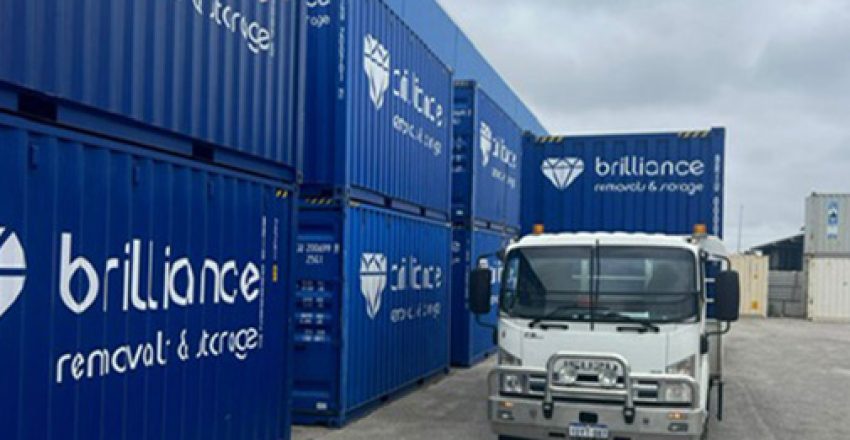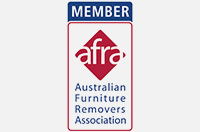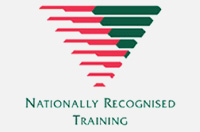Contents [hide]
Moving interstate can be stressful and expensive.
Maybe you’re relocating for work, family, or business, choosing the right affordable interstate removalists can make all the difference.
For residential customers and business owners, cutting down on moving costs while ensuring reliable service is key.
This guide will help you explore cost-saving strategies, spot hidden fees, and find the best deals for your move.
Finding Affordable Removalists
Researching Options
Finding cheap interstate removalists starts with research. Instead of choosing the first company you find, consider:
- Comparing Multiple Providers: Look at at least three to five removalists to compare services and pricing. Don't simply settle for the first company you come across. Instead, obtain quotes from at least three to five different removalist companies. This will give you a broader understanding of the market, allowing you to assess the range of services offered and their associated costs.
- Checking Online Reviews: Utilize online review platforms like Google Reviews, ProductReview, Trustpilot, Yelp, and Amazon Customer Reviews when researching a product or service. Additionally, consider industry-specific review sites. Remember to evaluate multiple sources as individual experiences may vary.
- Assessing Services: When selecting a removalist company, it's crucial to be aware that not all services are universally included. Packing services, which can save you significant time and effort, may not be part of the basic package. Insurance coverage for your belongings during the move is also essential but might not be automatically included. Additionally, if you require storage solutions before, during, or after your move, you'll need to verify whether the removalist offers these services and at what cost.
To avoid any unpleasant surprises and ensure a smooth moving experience, it's highly recommended that you carefully review and compare the services offered by different removalist companies. Don't hesitate to ask for a detailed breakdown of what is included in their quotes and what would incur additional charges.
Requesting Quotes
When requesting quotes, follow these steps:
- Be Specific About Your Inventory: Create a detailed list that includes the number of items, their type (boxes, furniture, appliances, etc.), and any special handling requirements. For example, if you have fragile items like mirrors or artwork, or large pieces like pianos or oversized furniture, be sure to mention them specifically.
- Pinpoint the Locations: Provide the full addresses for both the pickup and drop-off locations, including any relevant details like apartment numbers, floor numbers, or access restrictions. This helps the movers plan the most efficient route and anticipate any potential challenges.
- Request a Transparent Quote: Ask for a written quote that clearly outlines all the costs involved, including:
- Base Rate: The cost of the move itself, which may be based on factors like the distance, the volume of goods, and the number of movers required.
- Fuel Surcharge: The cost of fuel, which can fluctuate depending on market prices.
- Insurance: The cost of insuring your goods against damage or loss during the move.
- Additional Handling Fees: Any extra charges for handling special items, navigating stairs or elevators, or dealing with other logistical challenges.
- Get Everything in Writing: A detailed written quote protects both you and the moving company by ensuring that everyone is on the same page about the services being provided and the costs involved. It also provides a reference point in case of any disputes or misunderstandings.
Hidden Costs to Watch For
Common Hidden Fees
Even with cheap interstate removalists, hidden charges can inflate your bill.
Be mindful of:
- Packing Supplies and Labour: Costs for boxes, tape, bubble wrap, and other packing materials, as well as potential labour costs for professional packing services.
- Heavy Lifting Equipment and Labour: Potential need for dollies, hand trucks, lifting straps, or professional movers to handle large or heavy items, which could incur additional costs.
- Storage Facility Rental: Costs for short-term or long-term storage, including potential insurance and security fees.
- Transportation Costs: Fuel costs for personal vehicles or rental trucks, as well as potential mileage fees, tolls, and parking expenses. Consider also the distance and time involved in transportation, which could increase overall costs.
Understanding Contracts
Before signing any agreement, check for:
Cancellation & Rescheduling Fees:
- Clearly outline the costs associated with cancelling or rescheduling the service.
- Specify if the fees are fixed or vary based on the notice provided.
- Detail the conditions under which cancellations or rescheduling may incur charges.
- Include the procedure for cancelling or rescheduling the service.
Delivery Timeframes:
- Define the expected timeframe for the delivery of the service.
- State whether the timeframe is an estimate or a guarantee.
- Specify any conditions that may affect the delivery timeframe.
- Outline the consequences of delays in delivery, including any remedies or penalties.
Liability & Insurance:
- Clearly state the liability of each party for any damages or losses arising from the service.
- Specify the insurance coverage held by the service provider.
- Detail any additional insurance that the client may need to obtain.
- Outline the procedures for filing insurance claims in the event of damages or losses.
Questions to Ask Removalists
To ensure transparency, ask:
Moving Services Questionnaire
- Packing Materials: Are packing materials such as boxes, tape, bubble wrap, and furniture covers included in the quoted price, or are they an additional cost? If included, what quantity and types of packing materials are provided?
- Difficult Access: Is there an additional charge for moving items up or down stairs, through narrow doorways or hallways, or if the moving truck cannot park close to the entrance of the building? If so, how is this surcharge calculated?
- Delivery Delays: What is your policy on delivery delays due to unforeseen circumstances such as traffic, weather, or vehicle breakdowns? Will I be notified promptly of any delays, and will I be compensated for any inconvenience caused?
- Weekend Moves: Do you charge extra for moves scheduled on weekends or public holidays? If so, what is the additional fee?
- Additional Questions:
- Insurance: What type of insurance coverage do you offer for my belongings during the move?
- Payment: What payment methods do you accept, and when is payment due?
- Cancellation Policy: What is your policy on cancellations and rescheduling?
- Storage: Do you offer short-term or long-term storage options if needed?
- Inventory: Will you provide a detailed inventory list of all items being moved?
- Disassembly/Reassembly: Will your team disassemble and reassemble furniture or other items as needed?
- Cleaning: Do you offer cleaning services for the old or new residence?
- Speciality Items: Can you accommodate the moving of speciality items such as pianos, artwork, or large appliances?
- References: Can you provide references or testimonials from previous customers?
Seasonal Advantages for Interstate Moves
Best Times to Move
Moving during the right season can help you save significantly. Here’s what you need to know:
- Peak Season (Summer & End of Year): Higher demand means higher prices.
- Off-Peak (Winter & Mid-Year): Removalists offer discounts during less busy periods.
- Weekdays vs. Weekends: Weekday moves tend to be cheaper due to lower demand.
Cost Benefits of Off-Peak Moving
- Lower Rates: Companies offer better deals during slow months.
- Flexible Scheduling: You’re more likely to book your preferred moving date.
- Less traffic & delays: Fewer moving jobs mean smoother logistics.
Key Factors to Consider for Savings
Decluttering Before Moving
Reducing the number of items to move can lead to substantial cost savings. Try:
- Selling Unused Items: Use platforms like Gumtree or Facebook Marketplace.
- Donating to Charities: Organisations like The Salvation Army and Vinnies accept furniture and household items.
- Recycling Old Items: Dispose of broken or non-essential belongings responsibly.
Packing Smartly
- Use Quality Packing Materials: Reusing old boxes might lead to damage.
- Label Boxes Clearly: Saves time for movers, reducing labour costs.
- Pack heavy items in small boxes: Makes handling easier and prevents extra fees.
Exploring Backloading Options
One of the most cost-effective solutions for interstate moving is backloading, where your belongings share truck space with other loads. Benefits include:
- Lower Costs: Pay only for the space you use.
- Eco-Friendly: Reduces unnecessary trips and emissions.
- Availability: Best for flexible schedules.
Importance of Insurance Coverage
Understanding Transit Insurance
Even with the best removalists, accidents happen. Transit insurance protects your valuables from:
- Breakage & Damage: Covers items that get damaged in transit.
- Loss & Theft: Ensures compensation if items are lost.
- Weather-Related Incidents: Protects against floods, storms, and fire damage.
What Coverage Options Are Available?
- Basic Coverage: Included in most quotes but with limited protection.
- Full Replacement Insurance: Higher cost but covers the full value of damaged items.
- Third-Party Insurance: External providers may offer better rates than removalist-provided insurance.
Ready to Make Your Move?
Finding affordable interstate removalists doesn’t mean compromising on quality.
Keep your moving costs low and stress-free by comparing quotes, understanding hidden fees, moving during off-peak times, and using cost-saving strategies.
Need expert interstate removalists? Looking for professional removalists for your interstate move? Contact Us today to get a free quote.



























